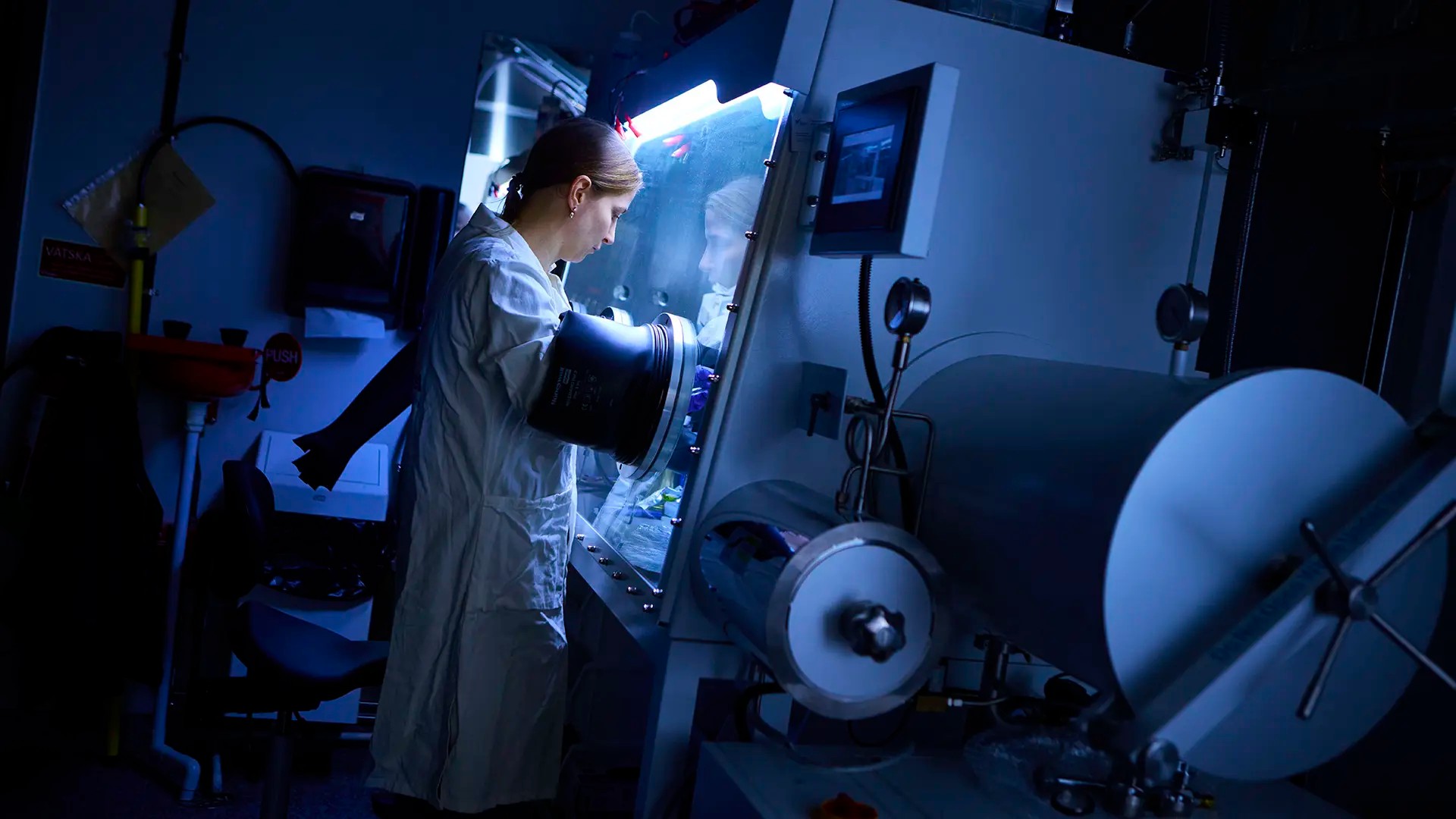
The division for Electric Power Engineering is proud of hosting two national centres of excellence:
Furthermore, the division hosts the Swedish Wind Centre.
The division is divided into two main research units:
Purpose
The division’s purpose is to develop interdisciplinary research areas within the university as well as with external partners. Research activities at the division can be organised in five main areas: power systems, power electronics, battery technology, electric machines and high voltage engineering. The strength of our research is based on a solid theoretical basis and extensive experimental verification in our laboratories as well as in the field. Additionally, the division owns a 45kW wind turbine, used for both in research and education. Current projects and activities aim at enhancing the knowledge and awareness regarding electrical systems for renewable energy sources, electromobility, buildings and industrial applications.
Power Grids and Components
The unit of Power Grids and Components conducts research and delivers education in the area of operation and control of electric power systems, power electronics in power systems and high voltage engineering. Key competences within the unit are technical- and market-based solutions for integrated energy systems with multi-energy conversion and storages; renewable energy sources and energy storage systems and their integration in the power grid; solutions for improving reliability, efficiency, and flexibility of future sustainable energy system; advanced materials for high voltage power components and methods for their diagnostics.
Electrical Machines and Power Electronics
The unit of Electrical Machines and Power electronics conducts research and delivers education in electrical machines, power electronics, drive systems, and battery technology. Key competences within the unit are high-efficiency and rare-earth-free electrical machines; wide-bandgap semiconductor-based drive converters; battery and fuel-cell technology; high-efficiency wireless charging; and modeling and control of electric drive systems.
By providing key knowledge for the technologies related to transportation, storage, and conversion of electric energy the division’s research contributes to society. The focus is on transformation of the existing energy system into a fully sustainable fossil-free system based on renewable energy sources (mainly wind and solar) and smart solutions for end consumption, including transport and residence. Our research is tightly linked to educational activities and allows us to deliver highly qualified engineers for industry and academia.
The division’s research contributes to societal challenges with/through secure, clean, and efficient energy usage as well as smart, green, and integrated transport. Our research facilitates:
- smart and efficient integration of renewable energy sources (mainly wind and solar) into the electric power systems
- implementation of advanced technologies for increasing security, flexibility and efficiency of power systems and its components
- introduction of new materials for power components and their diagnostics methods
- new topology of electrical machines to reduce the dependence on rare-earth metals
- high-efficient drive and charging components and systems to accelerate the implementation of electromobility
- new battery technology to enhance its viability and usability in transport and electric power systems.
